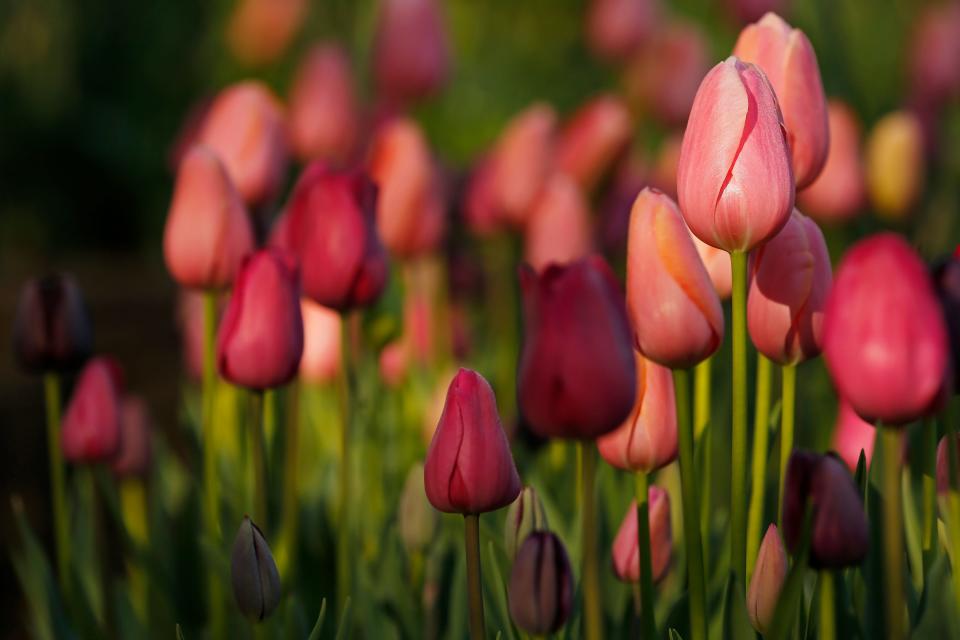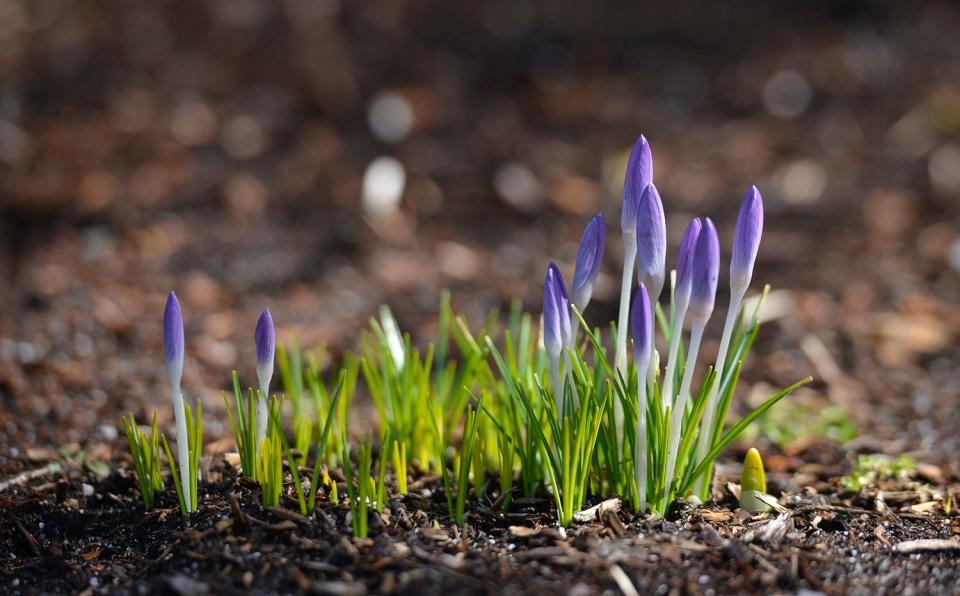Everything to know about spring bulbs for your garden | Gardener State
It is officially spring, and we are fortunate to have many species of bulbs that are flowering in Central Jersey right now. Spring bulbs provide some of the first colorful blooms of the season and are a welcome sight after the winter months. Many of these flowers are easy to grow and can be incorporated into gardens of every shape or size.
Daffodils are very familiar flowers to see blooming this time of year. But did you know that daffodils are one of the oldest cultivated ornamental bulbs? There are 60 different species of daffodils, and they have a native range that includes Europe, North Africa, Western Asia, and the Mediterranean. They can have a long lifespan in the landscape as long as they are growing in well-drained soil, and they will produce more flowers if they are located in full sun. Daffodils are also generally resistant to being eaten by deer, rabbits, and squirrels.
Tulips, while beautiful, are not deer resistant and are often eaten in areas with high deer pressure just as they are blooming. However, they are worth growing if you can protect them from the wildlife. Tulips come in many different shapes and colors and have been cultivated and hybridized for hundreds of years. This means that there are many options available for gardeners who want to grow tulips. Tulips grow best in rich, fertile, well-drained soil located in a sunny location. They should be planted 4 to 6 inches deep, and they will come back each year.

Hyacinths are among the most fragrant spring flowering bulbs and are also attractive to pollinators. These flowers offer an excellent early season nectar source for many bees and butterflies. Common hyacinth colors include purple, pink, and white and they are often grown in containers to be sold as early blooming potted plants. After container-grown hyacinths have bloomed, they can be planted outside, and they will come back year after year. Hyacinths will thrive in well drained soils with plenty of organic matter in full sun.
More Gardener State: Early tips for your spring vegetable garden
More: What are the benefits of horticultural therapy?
Crocuses are often the first plant to bloom in many gardens. Technically, they are botanically classified as corms, instead of bulbs, but they share many similar growth requirements and attributes. Crocuses can grow in full sun to partial shade with well-drained, sandy loam soils. Crocuses are drought tolerant but require adequate moisture to produce their flowers. Crocus flowers will typically open in the day and close at night or on cloudy days when there is less sunlight. They are generally planted in the fall 2 to 3 inches deep and 2 inches apart to form a clump that will bloom the following spring. Fun fact: saffron is produced from the dried stigmas from flowers of the crocus species, Crocus sativus.

After most bulbs are done blooming, the flower stalk should be cut back so that the plant does not put its energy into producing seeds but allow the leaves to remain until they turn yellow. The green foliage will continue to provide energy to the rest of the plant and help to feed the underground bulbs. Most bulbs will multiply underground each year and will require dividing every few years to stay productive.
If you are interested in learning more about taking care of your garden and the many plants that call it home, save the date for the Spring Garden Days Plant Sale, hosted by the Rutgers Master Gardeners of Monmouth County on Friday, May 19 and Saturday, May 20. This free annual event features garden tours, horticultural presentations, and question and answer sessions with Rutgers Master Gardeners. Of course there will also be plenty of great plants for sale, including annuals, perennials, hanging baskets, vegetables, trees, and shrubs. The event will be held at the Monmouth County Agriculture Building, 4000 Kozloski Road in Freehold. For more information, visit monmouth.njaes.rutgers.edu/master-gardeners or call 732-431-7260.
William Errickson is the Agriculture and Natural Resources Agent for Rutgers Cooperative Extension of Monmouth County.
This article originally appeared on MyCentralJersey.com: Gardening: Spring bulbs tips for NJ planters

